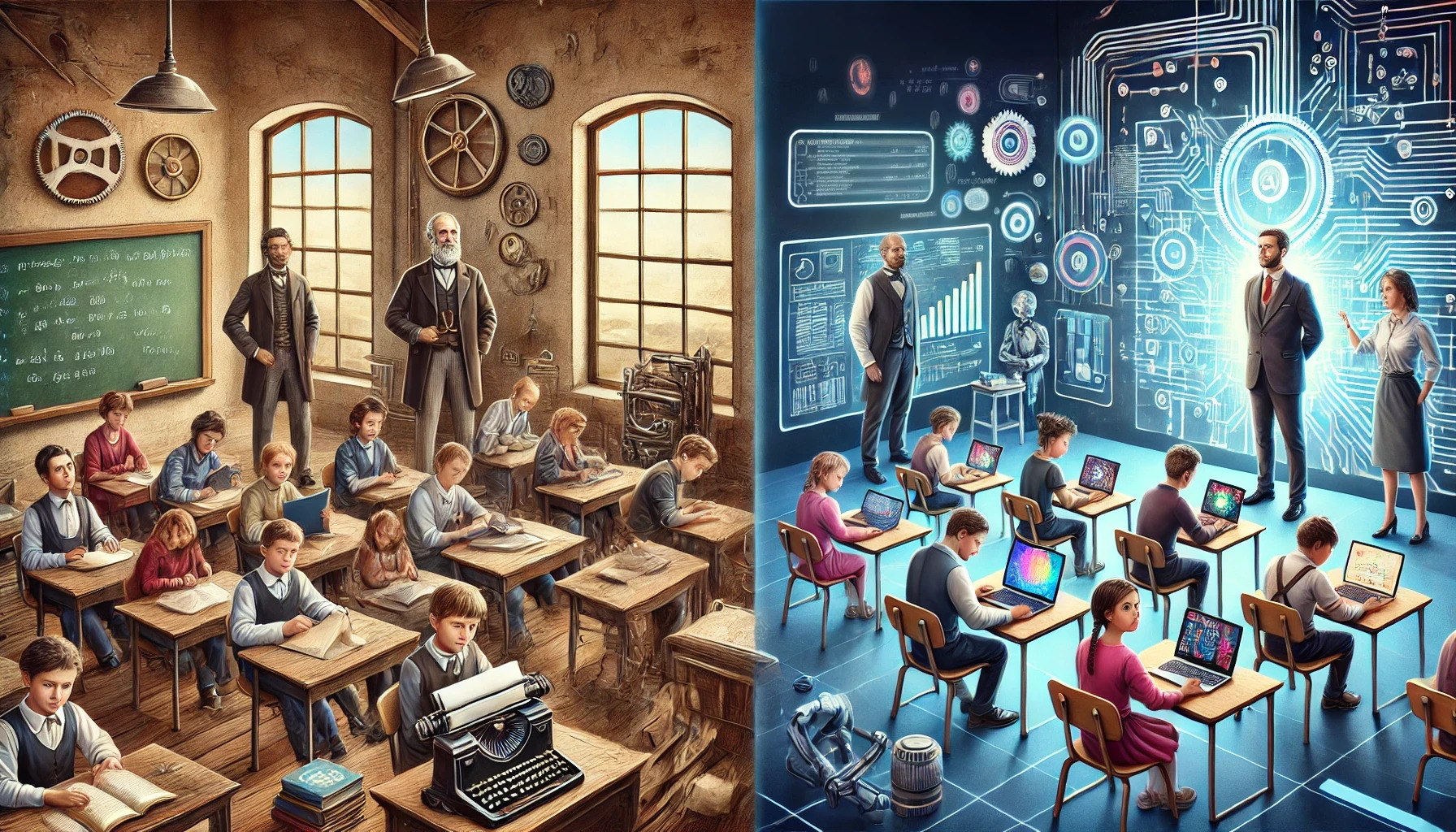
Technology related to artificial intelligence (AI) has quickly permeated many facets of society, including education. There is a lot of discussion about whether AI will improve education, and there are many points of contention that point to both possible advantages and drawbacks. The impact of AI on education is examined in this blog article.
The capacity of AI to offer individualised learning experiences is a major benefit of technology in education. AI is able to customise educational materials to each student’s needs by analysing data from their interactions. AI, in the opinion of UNESCO, has the potential to greatly improve educational outcomes by providing personalised feedback and resources that are tailored to each student’s unique learning style and speed. AI can also alter learning paths in real time. Is this a solution to make tracking/streaming more efficient without stressing out teachers?
Students with disabilities may find education more accessible thanks to artificial intelligence. AI-powered resources, such as real-time translation services and speech-to-text apps, can assist in removing obstacles that these students might encounter in a conventional classroom. A wider audience can access learning opportunities thanks to the democratisation of education.
Teachers may concentrate more on instruction and student engagement by using AI to automate administrative activities like attendance and grading. Quick and impartial assessments can be produced by AI-driven systems, giving teachers more time to organise lessons and give individualised student support. Some of such feedbacks, however, need to be pre-customized to maintain the human touch. ClassPoint.
AI technology can reinforce preexisting prejudices and possibly make them worse, despite their many advantages. Because AI systems can only be as objective as the data they are trained on, there have been several cases in which socioeconomic, racial, and gender biases in the data have been reflected in the AI. This may result in pupils from marginalised groups being treated unfairly. The NEA emphasises that as AI has the potential to propagate prejudices and preconceptions, these concerns must be addressed in the development and application of AI. Interestingly, I have to specify “a black male teacher” for ChatGPT to generate an image with a black teacher…this also applies when it generates images of students in a class; I have to specify “diverse”.
There are serious privacy issues with the use of AI in education. For AI systems to work well, enormous volumes of data are needed, including private student information. The gathering of this data may result in possible privacy violations and improper use of personal data. According to a Fordham Institute study, AI technologies seriously jeopardise student privacy, underscoring the necessity of strict data protection regulations.
Another important factor to consider is how AI technology will affect the environment. AI system maintenance and training demand a large amount of energy, which adds to the system’s carbon footprint. Kehlenbach (2024) points out that while evaluating the overall advantages of AI in education, it is important to take into account its environmental costs, which include the extraction of raw materials and energy consumption for data centres Journal of Political Science Education.
Students may abuse artificial intelligence (AI) tools, such as text creation models, to generate answers for homework and tests. This compromises academic integrity and may make degrees less valuable. According to a Slate article, AI writing tools can encourage academic dishonesty, making it difficult for teachers to verify if students’ work is real.
There are two sides to integrating AI technology into teaching. On the one hand, AI has the power to completely transform education by improving accessibility, personalising instruction, and automating administrative duties. However, to guarantee that AI actually improves the educational landscape, major issues like bias, privacy concerns, environmental impact, and threats to academic integrity must be addressed. The way these technologies are incorporated and governed will determine how AI is used in education in the future. Stakeholders can collaborate towards developing an educational environment where AI improves learning while protecting against its hazards by recognising and resolving the potential downsides.
Dear educators, It is not enough to accept AI in education; do you know enough to contribute to the AI policy in your sphere of influence?
Your post on AI-powered technologies in education is comprehensive and thought-provoking. I particularly appreciate your detailed exploration of the potential benefits, such as personalized learning and administrative efficiency, as well as the significant challenges, including biases and privacy concerns. My main takeaway is the importance of a balanced and ethical approach to integrating AI into education.
🚀 Just explored 360 AI Training – absolutely mind-blowing! This online coaching unlocks the power of AI tools to earn smartly from home. Whether you’re a beginner or pro, this is your chance to grow fast with the future of digital skills! 🔥
💡 Highly recommended for anyone serious about online income.
👉 Click here to start your 360 AI journey now
https://tinyurl.com/nhch9ey4